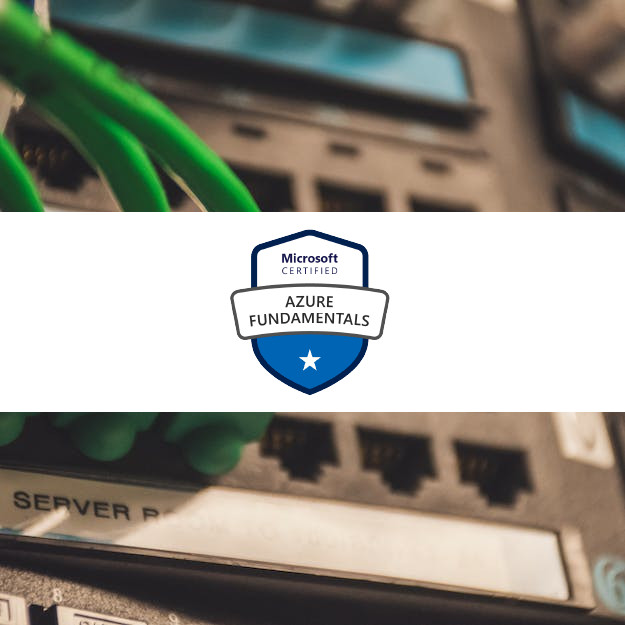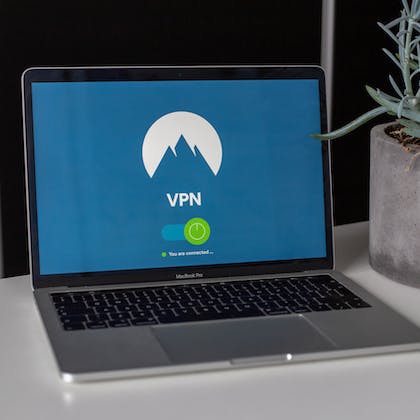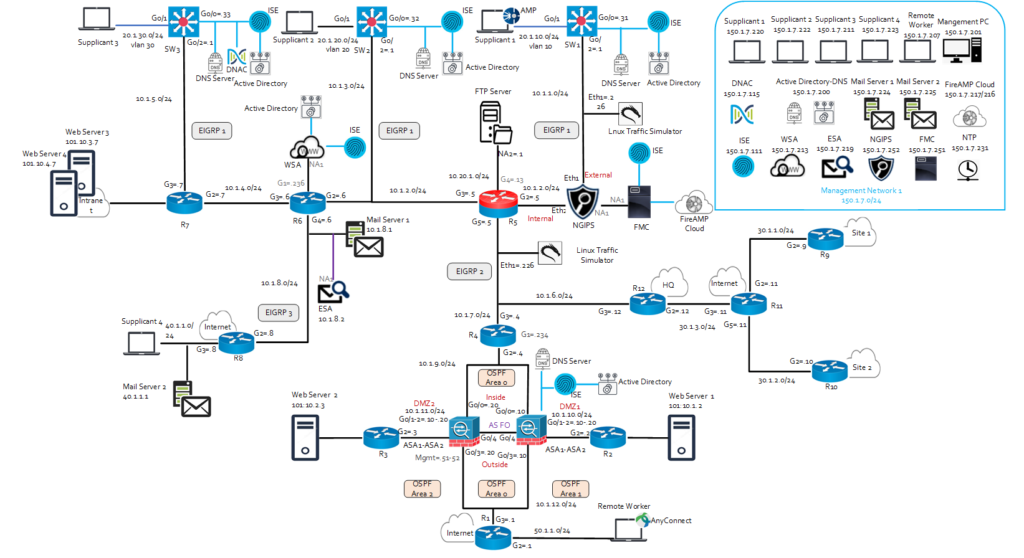

EXPLORE.PERSIST.MASTER.
Microsoft Azure Fundamentals Training.
Share :
+971 43346660
IP Rulers designed this Learning Path is to help you to prepare for the AZ-900 Microsoft Azure Fundamentals exam. Even if you don’t plan to take the exam, these courses will help you gain a solid understanding of Microsoft Azure. Candidates who pass the AZ-900 exam will earn the Microsoft Certified Azure Fundamentals certification. The Microsoft Azure (AZ-900) exam tests your knowledge based on primarily four learning paths as defined. It caters to general cloud concepts, together with an understanding of the foundational aspects and benefits of Microsoft’s Cloud including subscriptions offered, available support plans available, understanding the difference between Infrastructure as a Service, Platform as a Service and Software as a Service, and thereby identifying the services to use as per the requirement.
Azure Fundamentals certification is an opportunity to prove knowledge of cloud concepts, core Azure services, Azure pricing, SLA, and lifecycle, and the fundamentals of cloud security, privacy, compliance, and trust.This AZ-900 training is the ideal entry point into the Microsoft certification program for IT professionals, and can even be used as user training for Azure migrations. The AZ-900 exam tests your knowledge of four subject areas. Here’s how IP Rulers will cover the course in this Learning Path. We’ll start by going over general cloud concepts, so you don’t need to have any previous cloud experience. Next, we’ll dive into the specifics of Microsoft Azure, starting with the core Azure services, including compute, networking, storage, and databases. Then, we’ll cover security, privacy, compliance, and trust. Finally, we’ll go over Azure pricing and support.
Required exam – Microsoft Certified: Azure Fundamentals – AZ-900
This Microsoft Certified Azure Fundamentals training covers the AZ-900 exam objectives, and topics such as:
- Describe cloud concepts
- Describe core Azure services
- Describe security, privacy, compliance, and trust
- Describe Azure pricing Service Level Agreements, and Lifecycles
Target Audience
- IT Engineers attempting the AZ:900 Microsoft Azure Fundamentals exam
- This certification is intended for people beginning to work with cloud-based solutions and services.
- Candidates who are looking to validate their foundational level knowledge of the cloud.
- Individuals involved in selling or purchasing cloud-based solutions and services.
- Business managers, program managers and technical sales, with a general IT background
- It is also useful for individuals in technical, managerial, sales, purchasing, or financial roles who work with the Azure Cloud.
Prerequisite:
No technical IT experience is required for this exam, but some general IT knowledge would certainly be beneficial.
- Essential skills in cloud computing concepts in the fast changing world of technology cloud computing concepts
- Ability to recognize customer requirements and support proposed solutions of Cloud.
- Enhanced job opportunities related with core services available with Microsoft Azure
- You will be able to demonstrate a fundamental knowledge of cloud concepts, as well as Azure services, workloads, security, privacy, pricing, and support.
- Training will give the non-technical professional a basic understanding of Azure cloud services and how to make the most of them
- More appropriate for technical students who need to create services in the Azure portal, and may go on to role-based courses and certifications, such as Azure Administrator.
Duration
20 Hours
Skill Level
Beginner
Certificate
Yes
Modules
4
Language
English
Mode
Online/Offline
Key Highlights
- Live Instructor-Led Training (Online & Classroom)
- 40 Hours of Technology Lectures
- Weekdays (Tue - Fri)
- Weekend (Fri-Sat or Sat-Sun)
- Real World Live Scenarios and Migrations
- Exam question bank and Preparation
Key Highlights
- 100% Pass Guarantee
- 24/7 Access to the Learning Resources
- Hands-on Lab Practice on physical equipment
- Flexible Installment Plans
- Boot Camp Training for a Fast Track Learning
- Demand-driven recorded video lectures for references
Course Curriculam
1.1 Describe the benefits and considerations of using cloud services
- describe terms such as High Availability, Scalability, Elasticity, Agility, Fault Tolerance, and Disaster Recovery
- describe the principles of economies of scale
- describe the differences between Capital Expenditure (CapEx) and Operational Expenditure (OpEx)
- describe the consumption-based model
1.2 Describe the differences between Infrastructure-as-a-Service (IaaS), Platform-as-a-Service (PaaS) and Software-as-a-Service (SaaS)
- describe Infrastructure-as-a-Service (IaaS),
- describe Platform-as-a-Service (PaaS)
- describe Software-as-a-Service (SaaS)
- compare and contrast the three different service types
1.3 Describe the differences between Public, Private and Hybrid cloud models
- describe Public cloud
- describe Private cloud
- describe Hybrid cloud
- compare and contrast the three different cloud models
2.1 Describe the core Azure architectural components
- describe Regions
- describe Availability Zones
- describe Resource Groups
- describe Azure Resource Manager
- describe the benefits and usage of core Azure architectural components
2.2 Describe some of the core products available in Azure
- describe products available for Compute such as Virtual Machines, Virtual Machine Scale Sets, App Services, Azure Container Instances (ACI) and Azure Kubernetes Service (AKS)
- describe products available for Networking such as Virtual Network, Load Balancer, VPN Gateway, Application Gateway and Content Delivery Network
- describe products available for Storage such as Blob Storage, Disk Storage, File Storage and Archive Storage
- describe products available for Databases such as Cosmos DB, Azure SQL Database,Azure Database for MySQL, Azure Database for PostgreSQL, Azure Database Migration service
- describe the Azure Marketplace and its usage scenarios
2.3 Describe some of the solutions available on Azure
- describe Internet of Things (IoT) and products that are available for IoT on Azure such as IoT Hub and IoT Central
- describe Big Data and Analytics and products that are available for Big Data and Analytics such as Azure Synapse Analytics, HDInsight, and Azure Databricks
- describe Artificial Intelligence (AI) and products that are available for AI such as Azure Machine Learning Service and Studio
- describe Serverless computing and Azure products that are available for serverless computing such as Azure Functions, Logic Apps, and Event Grid
- describe DevOps solutions available on Azure such as Azure DevOps and Azure DevTest Labs
- describe the benefits and outcomes of using Azure solutions
2.4 Describe Azure management tools
- describe Azure tools such as Azure Portal, Azure PowerShell, Azure CLI and Cloud Shell
- describe Azure Advisor
3.1 Describe securing network connectivity in Azure
- describe Network Security Groups (NSG)
- describe Application Security Groups (ASG)
- describe User Defined Rules (UDR)
- describe Azure Firewall
- describe Azure DDoS Protection
- choose an appropriate Azure security solution
3.2 Describe core Azure Identity services
- describe the difference between authentication and authorization
- describe Azure Active Directory
- describe Azure Multi-Factor Authentication
3.3 Describe security tools and features of Azure
- describe Azure Security Center
- describe Azure Security Center usage scenarios
- describe Key Vault
- describe Azure Information Protection (AIP)
- describe Azure Advanced Threat Protection (ATP)
3.4 Describe Azure governance methodologies
- describe policies and initiatives with Azure Policy
- describe Role-Based Access Control (RBAC)
- describe Locks
- describe Azure Advisor security assistance
- describe Azure Blueprints
3.5 Describe monitoring and reporting options in Azure
- describe Azure Monitor
- describe Azure Service Health
- describe the use cases and benefits of Azure Monitor and Azure Service Health
3.6 Describe privacy, compliance and data protection standards in Azure
- describe industry compliance terms such as GDPR, ISO and NIST
- describe the Microsoft Privacy Statement
- describe the Trust center
- describe the Service Trust Portal
- describe Compliance Manager
- determine if Azure is compliant for a business need
- describe Azure Government cloud services
- describe Azure China cloud services
4.1 Describe Azure subscriptions
- describe an Azure Subscription
- describe the uses and options with Azure subscriptions such access control and offer types
- describe subscription management using Management groups
4.2 Describe planning and management of costs
- describe options for purchasing Azure products and services
- describe options around Azure Free account
- describe the factors affecting costs such as resource types, services, locations, ingress and egress traffic
- describe Zones for billing purposes
- describe the Pricing calculator
- describe the Total Cost of Ownership (TCO) calculator
- describe best practices for minimizing Azure costs such as performing cost analysis, creating spending limits and quotas, using tags to identify cost owners, using Azure reservations and using Azure Advisor recommendations
- describe Azure Cost Management
4.3 Describe Azure Service Level Agreements (SLAs)
- describe a Service Level Agreement (SLA)
- describe Composite SLAs
- describe how to determine an appropriate SLA for an application
4.4 Describe service lifecycle in Azure
- describe Public and Private Preview features
- describe the term General Availability (GA)
- describe how to monitor feature updates and product changes
lab infrastructure.

CCIE enterprise infrastructure v1.1 equipment and software list:


The practical exam tests candidates on solutions that can be configured using the below
Equipment and software versions. Candidates may see more recent software versions
during their attempt but will only be tested on features that are supported in the list below.
Passing the exam requires a depth of understanding difficult to obtain without hands-on
experience. Early in your preparation you should arrange access to equipment and soft-
ware similar to that used on the exam.
Virtual machines
- Cisco Catalyst 8000V Routers with Cisco IOS XE Software Release 17.9
- Cisco IOSv with Cisco IOS Software Release 15.8
- Cisco IOSv-L2 with Cisco IOS Software Release 15.2
- Cisco SD-WAN (vManage, vBond, vSmart, cEdge) Software Release 20.9
- Cisco DNA Center, Release 2.3

Physical Equipment
- Cisco Catalyst 9300 Switches with Cisco IOS XE Software Release 17.9 Other (supporting virtual machines)
- Cisco Identity Services Engine 3.1
- Linux Desktop
Topology


Modes Of Training
We provide various modes of training, each catering to different learning styles, preferences, and needs.You can make your choice of training mode.
- Classroom-Based Training
- One-On-One Training
- Online Training
- Corporate Training
- Fast Track Training
- Private Group Training
- Lab Workshop Training
Instructors
MCSE,RHCE,CCNP,CEH,CSA,CCSE,F5-CTS, AWS & Azure
Certified instructor with 20+ years of experience in the field of cloud and cybersecurity. Proven success in leveraging educational theories and methodologies to design, develop, and deliver successful training programs and integrate instructional technology to provide onsite and virtual training. Babu has helped IPRULERS in setting the bar for cloud and cyber security training and helping thousands of engineers to obtain their own certifications. He excels in corporate training and has excellent interpersonal skills that make him stand out. Babu has proven his knowledge and skills in delivering training for the Microsoft, Amazon, f5, Check Point, EC-Council, CompTIA & Cisco etc.

Babu Varghese
Senior Cloud & Security Specialist




